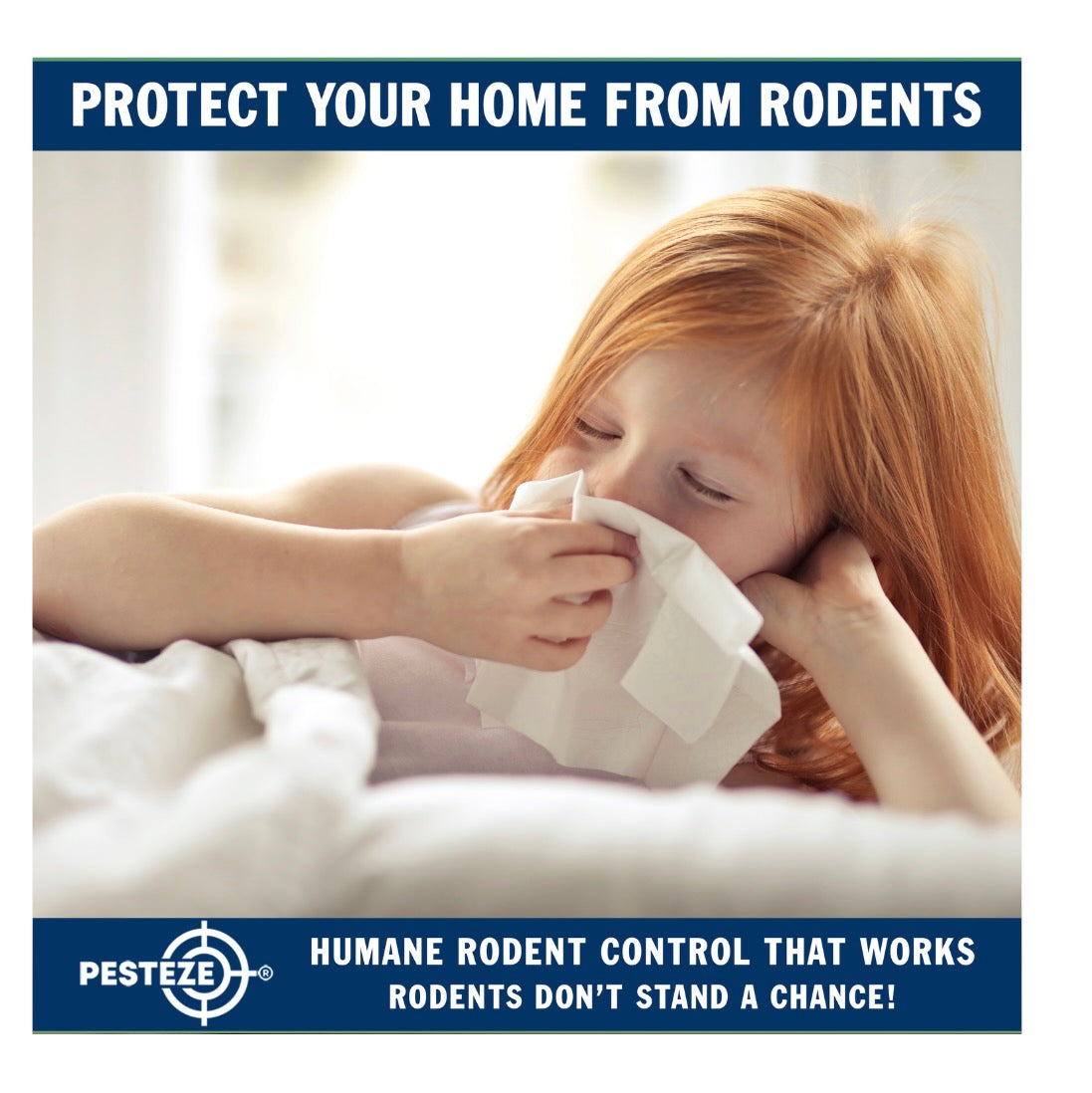THE CONNECTION BETWEEN RODENTS AND ALLERGIES: WHAT YOU NEED TO KNOW

THE CONNECTION BETWEEN RODENTS AND ALLERGIES: WHAT YOU NEED TO KNOW
SUMMARY
Rodents don’t just bring disease—they can also trigger or worsen allergies and asthma. Learn how rodent allergens affect indoor air quality and what steps you can take to protect your family’s health.
FEATURES
-
Rodent Dander: Shed fur and skin flakes can become airborne allergens.
-
Droppings and Urine: Waste materials contain proteins that cause allergic reactions.
-
Airborne Contaminants: Rodent activity stirs up dust that irritates lungs.
-
Asthma Triggers: Rodent allergens are linked to increased asthma symptoms, especially in children.
-
Hidden Infestations: Allergies may be your first sign of rodent presence.
-
Indoor Air Quality: Rodents degrade air quality, worsening respiratory health.
DESCRIPTION
While most people associate rodents with contaminated food or chewed wires, one of their more insidious effects is their role in triggering allergies and asthma. Rodent allergens are a serious and often overlooked health issue, particularly in homes where infestations go unnoticed.
Rodent dander, like pet dander, consists of tiny particles of skin and hair that rodents shed naturally. These particles can float in the air and be inhaled, especially when rodents nest in attics, basements, or inside walls. In susceptible individuals, this can cause sneezing, coughing, watery eyes, and itchy skin.
Even more concerning is the presence of rodent droppings and urine. These waste materials contain potent proteins that can provoke allergic reactions. When dried droppings or urine are disturbed—say, during vacuuming or sweeping—those proteins become airborne and can be inhaled, leading to respiratory irritation or severe allergic responses.
Studies show a strong connection between rodent allergens and asthma, particularly in children. In urban areas, exposure to mouse or rat allergens has been associated with increased asthma attacks, emergency room visits, and hospitalizations. People with existing respiratory conditions are especially vulnerable to worsening symptoms due to rodent exposure.
Sometimes, persistent allergies or respiratory symptoms may be one of the first clues of a hidden rodent infestation. If traditional allergy medications aren't helping and you notice unusual signs like scratching sounds in walls, gnaw marks, or unexplained odors, rodents may be to blame.
Additionally, rodents impact indoor air quality overall. Their nesting habits and waste build-up create an unhealthy environment, especially in confined or poorly ventilated spaces.
To minimize allergic reactions caused by rodents, prompt and effective control is key. This includes sealing entry points, using humane traps, cleaning thoroughly with appropriate safety gear, and maintaining a dry, clutter-free home. HEPA air purifiers and vacuum filters can also help reduce allergens in the air.
By understanding the allergy risks rodents pose, you can take proactive steps to keep your living space healthy and safe.
- Nikita Gulrajani


Comments 0